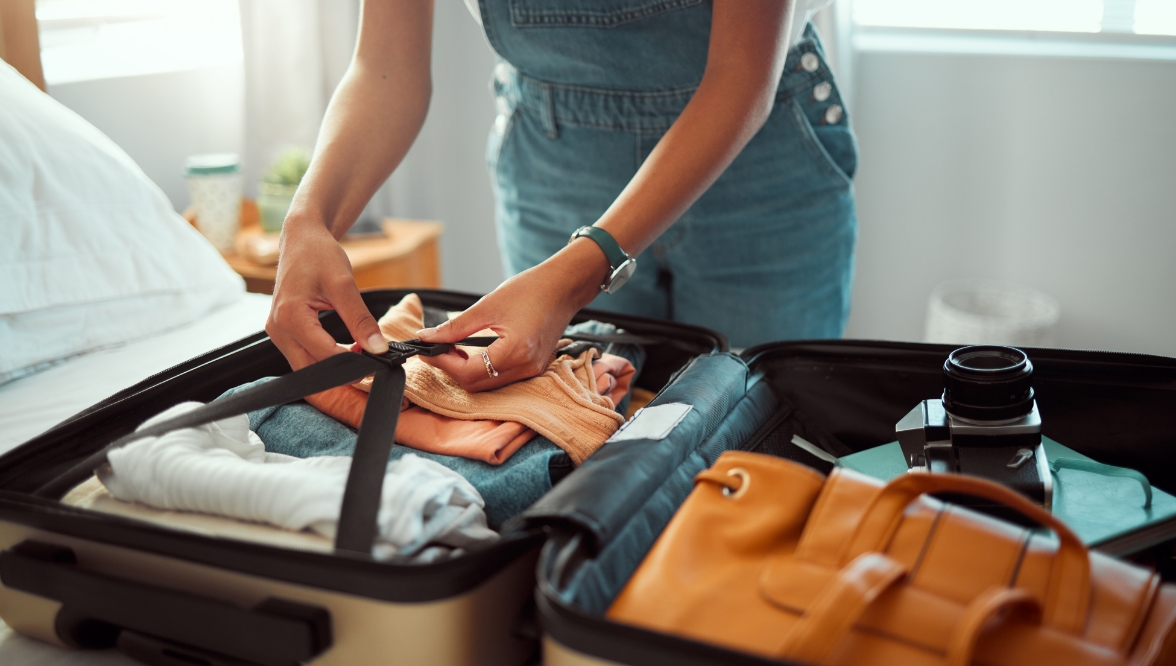Business Content
How to Travel Internationally for the First Time: 8 Key Financial Tips

From navigating new cultures to exploring breathtaking sights, your first overseas trip will be an experience unlike any other. But, to ensure your trip is stress-free, make sure you make a financial plan to go along with your itinerary. If you need help getting started, here are eight essential financial tips to ensure your first international adventure goes smoothly:
1Budget Wisely: Plan for the Expected and Unexpected
Before booking your flight, create a realistic budget. Research costs for accommodations, meals, transportation, and attractions in your destination. Factor in the current exchange rate, keeping in mind that it can fluctuate. Set aside a financial cushion for unexpected expenses like flight delays, medical emergencies, or lost luggage.
2Choose the Right Cards and ATMs
Foreign transaction fees can add up fast, so try to use a credit or debit card that offers no or low foreign transaction fees. Before departing, notify your financial institution of your travel plans to avoid getting your cards flagged for suspicious activity and potentially blocked. When withdrawing cash, use ATMs instead of exchange bureaus for better rates, but check for potential international ATM fees and daily withdrawal limits.
3Maximize Rewards With the Right Credit Cards
Use a travel rewards credit card that offers perks like airline miles, hotel points, or cash back on travel-related expenses. Some cards even provide travel insurance or airport lounge access. Be mindful of foreign transaction fees and always pay your balance in full to avoid interest charges that could negate the value of your rewards.
4Currency Exchange: Smart Strategies for Savings
Getting the best exchange rates can make a big difference in your travel budget. Avoid airport currency exchanges, as they often have the worst rates. Instead, compare rates at banks, credit unions, or reputable currency exchange services before your trip. It’s a good idea to order about $50 worth of foreign currency from your financial institution a week or two before departure – just enough to cover tips, taxis, or initial travel expenses. Once you arrive at your accommodations, using a local ATM is often the most cost-effective way to withdraw additional cash at favorable rates, saving you from the hassle of searching for deals on arrival.
5Consider Travel Insurance
Strongly consider travel insurance, especially if this is your first trip abroad. A comprehensive travel insurance policy can cover medical emergencies, trip cancellations or interruptions, lost or delayed baggage, and other unforeseen problems that could arise. Read your policy carefully to know what’s covered and keep a copy with you while traveling.
6Track Your Spending to Stay on Top of Your Finances
It’s easy to get caught up in the excitement of traveling and overspend. To stay on top of your spending, use budgeting apps to track expenses, set limits, and categorize spending. Keep all your receipts, and record your spending in a spreadsheet or notebook to help monitor your budget and prevent overspending.
7Be Smart About Spending
Traveling doesn’t have to be expensive. Look for opportunities to save money while still enjoying your trip to the fullest. Look for free activities like walking tours, visits to parks and gardens, and exploring local markets. Enjoy affordable dining at street vendors or family-run restaurants, which are often less expensive than establishments geared toward tourists. When getting around, explore using public transportation instead of taxis to cut costs.
8Stay Connected Without Breaking the Bank
You will want to stay connected while abroad, but to avoid high roaming charges, check for international data plans or buy a local SIM card upon arrival. Take advantage of free Wi-Fi at cafes and your accommodations whenever possible to reduce data usage and avoid unnecessary charges. But be careful and keep your data secure: Avoid accessing sensitive accounts over public Wi-Fi unless you’re using a secure VPN.
Plan ahead and travel smart! With these financial tips, you can enjoy your international adventure without breaking the bank.